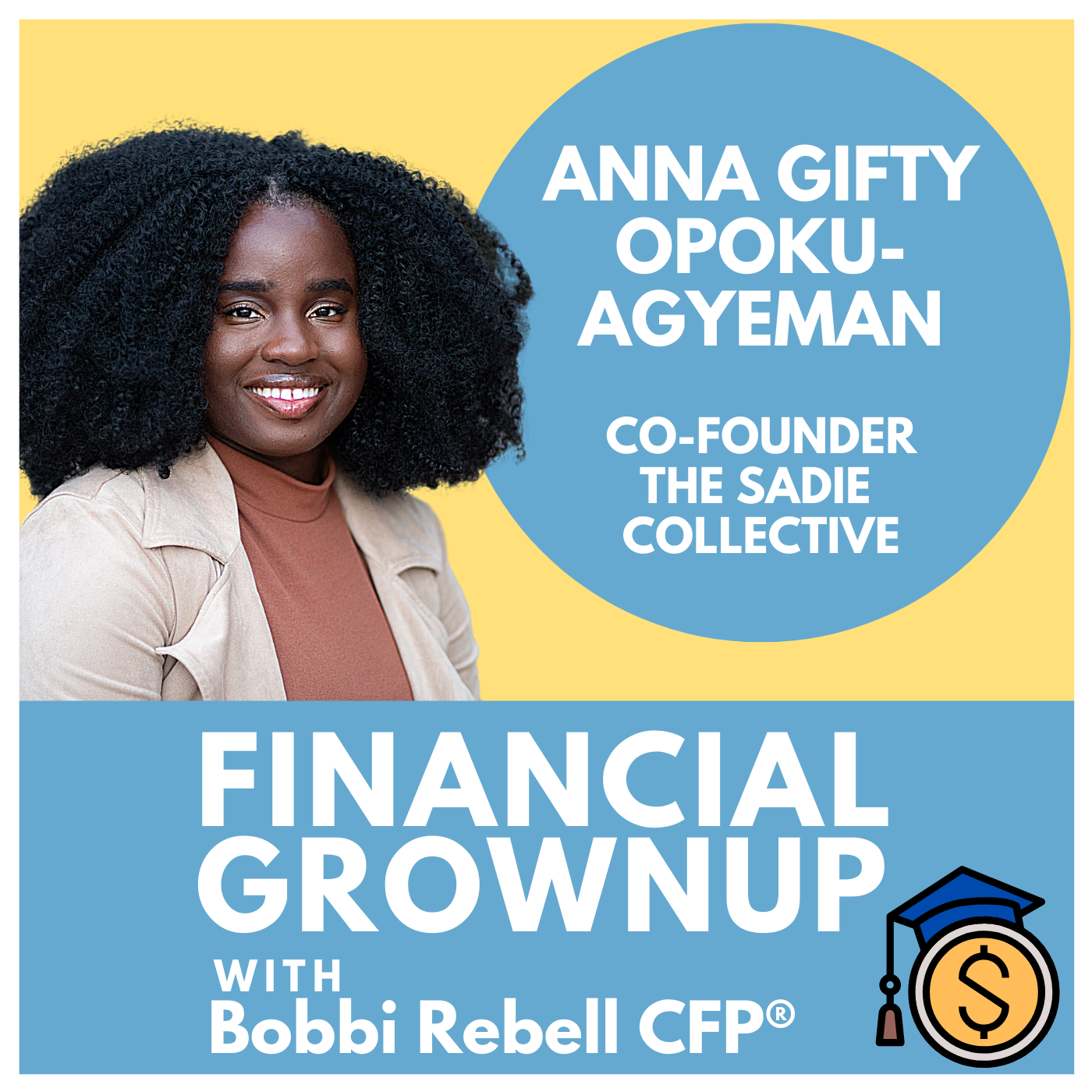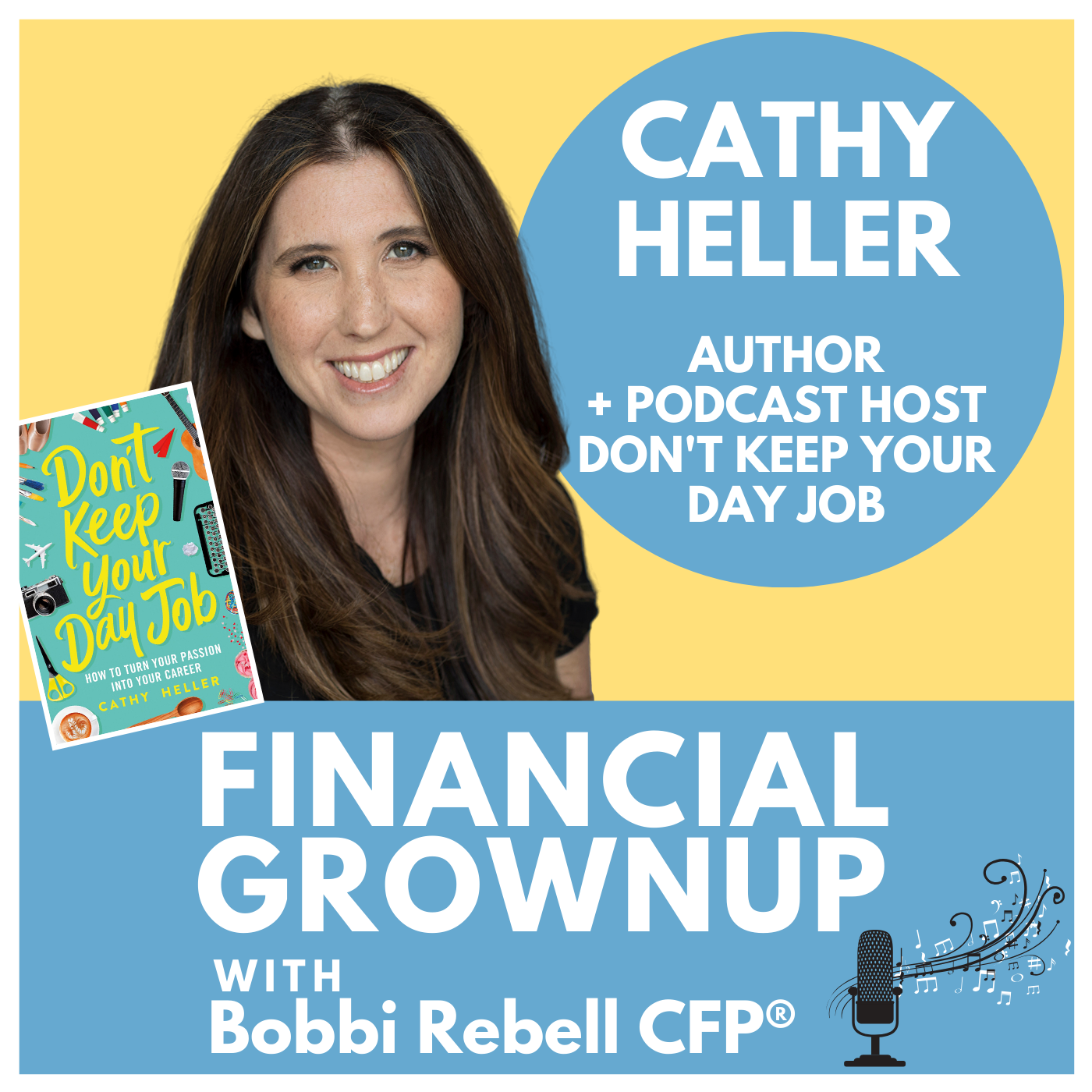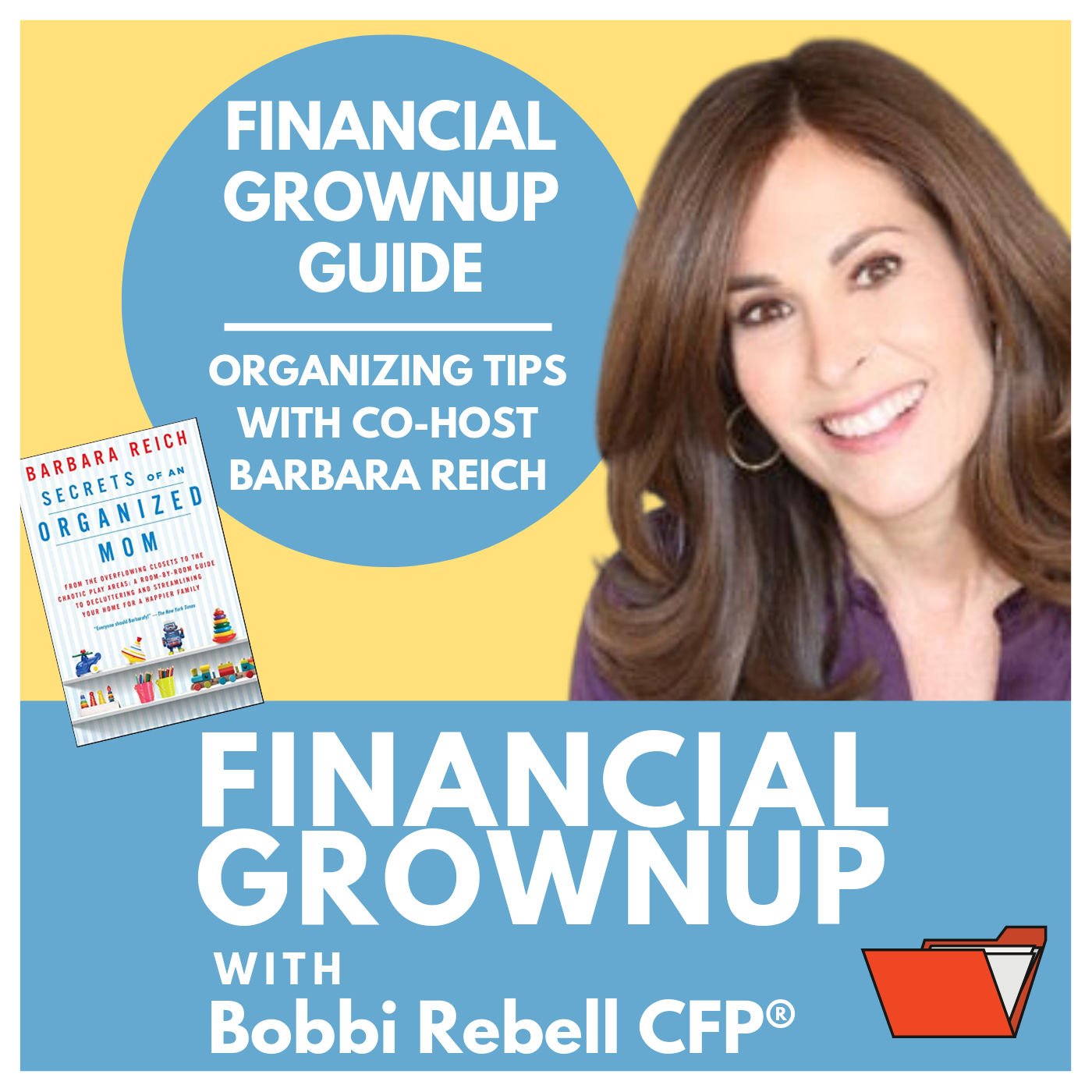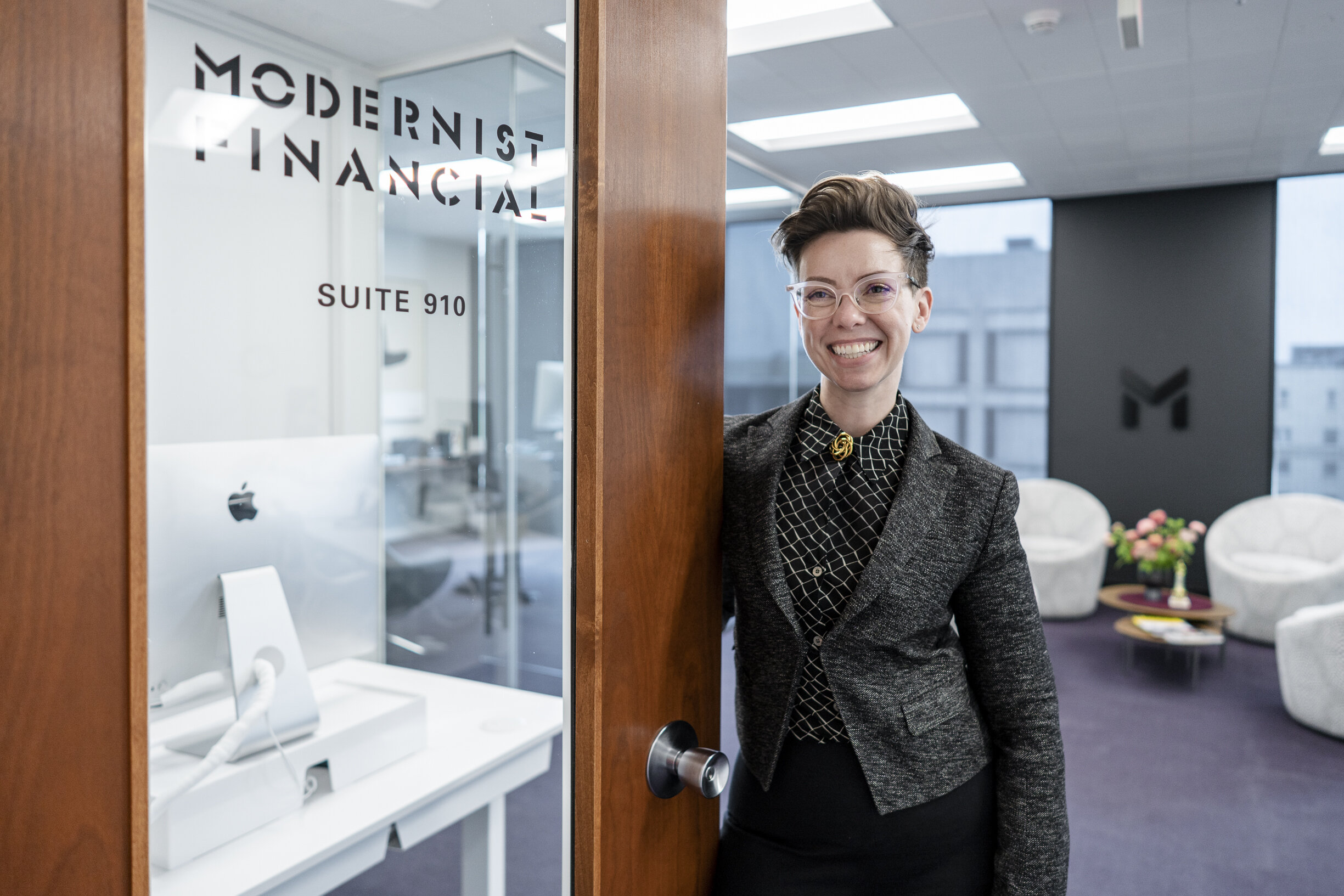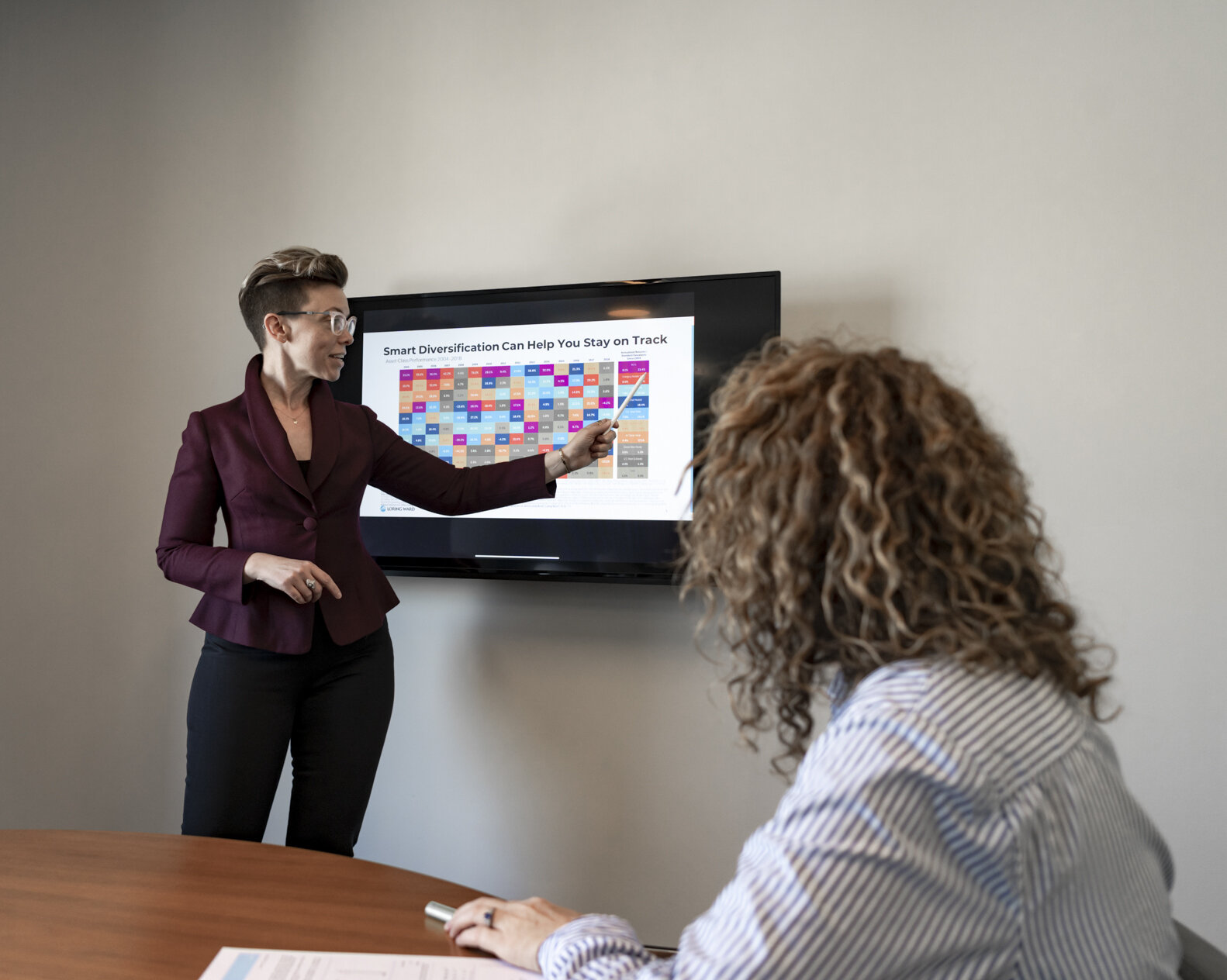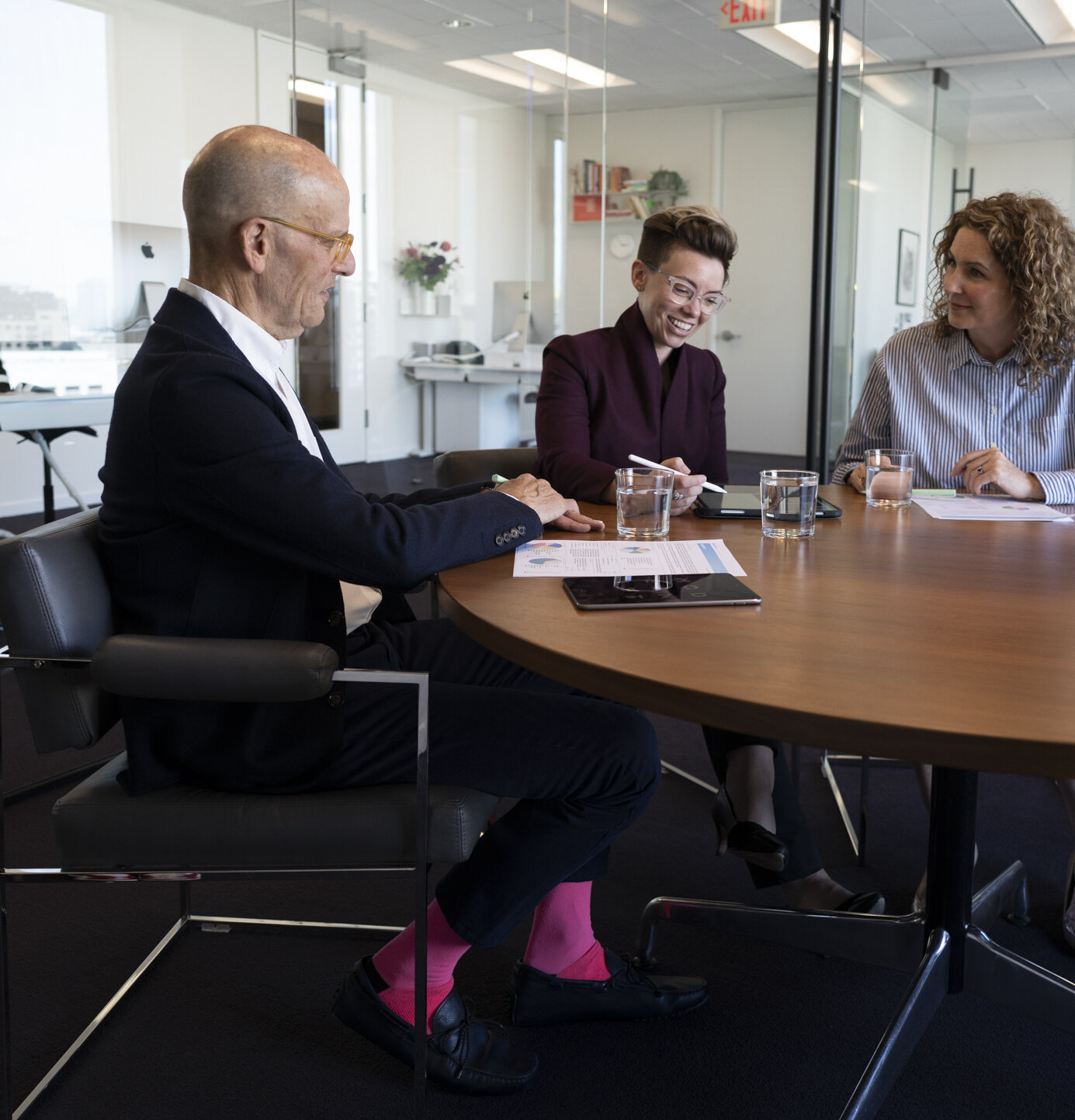As a young salesman Adam Carroll got a meeting with a big executive that changed everything. But it would not have happened without getting his name right. Adam shares the story, all the good that came from that first meeting, and specific ways to remember people’s names.
Adam’s Money Story:
Adam Carroll:
one of my very earliest jobs, I was selling suits for a clothier called Tom James, you may be familiar with it. They visit upper level executives in their offices. We had to ring up people every afternoon. We made 80 dials every single afternoon from 4 to 6:00PM.
Bobbi Rebell:
80 calls?
Adam Carroll:
80 calls.
Bobbi Rebell:
Oh my gosh.
Adam Carroll:
And the goal out of 80 calls was you had to get at least 15 people on the phone and set at least 5 or 6 appointments for the following week. Well, one of the gentlemen on my list was a man named Jim and the last name was H-E-B-E-R-T. And I was young and naive and I kept calling up and asking for Jim Hiebert. They teach you all the different tactics, just ask for Jim, ask for Mr. Hiebert, it's Adam calling for Jim, those kinds of things. And at one point I said, "I'm calling for Jim this is Adam Carroll." And she said, "Mr. Hebert is not in." And I had been calling him Hiebert for months up to that point. And so, finally I went, "Ah, it's Hebert, it's French. I'm going to make sure I say, Jim Hebert next time." And the very next time I called his office and I said, "It's Adam Carroll calling for Jim Hebert is he in?"
Adam Carroll:
They said, "Oh, he is. Yeah, just a moment." So I got on the phone with Jim set an appointment, and then I got in to see him. And this is where the story gets interesting Bobbi. Jim is in this very nondescript office park in Colorado. When you pull up to the building, it's one of those old drab concrete buildings that doesn't look like it's had any work done to it over the past 20 or 30 years. Lots of luxury cars in the parking lot but when I walked in, it had that smell of musty old carpet that had not been changed in again, 20 or 30 years. I walk into the office. There's lots of oil and gas photos all over the wall and I go in to sit with Jim Hebert and he immediately starts asking me questions about myself.
Adam Carroll:
And at the time I was about to get married, so I was engaged. He just completely caught me off guard. He said, "Well, where are you going on your honeymoon?" And I said, "Well, we haven't really firmly decided, but it's likely going to be either Hawaii or Fiji." And Jim asked me, "Have you ever been to The Bahamas?" And I said, "No, I haven't." And he said, "Well, would you like to go?" And at the time Bobbi, I'm thinking, are you asking me to go to the Bahamas with you or asking if my soon to be wife and I would like to go. And he said, "No, no, no, you and your wife could go to the Bahamas. You could take my yacht." Now, keep in mind this is the first time I met him.
Bobbi Rebell:
You just met him?
Adam Carroll:
I just met him and have not even shown him my shirt fabrics or anything because he said, "I'm not a suit wearer but I'll buy some shirts." And so, he's asking me if I want to take his yacht. I said, "Jim, man, I appreciate the offer. I don't even know how to take that." I said, "What is your yacht like?" Any points over at the wall? And he goes, "Well, there's a picture of it right there." And there's this like 75 foot schooner looking yacht. And at that point I was, again, dumbfounded and I said, "Jim, I don't know the first thing about captaining or piloting a yacht, I don't even know what you call it." And he said, "Oh, don't be silly Adam, there's a full-time captain onboard." It was in that moment, Bobbi, that I realized that I have a lot to learn first of all in the business, but a lot to learn from this gentleman.
Adam Carroll:
And he and I became good friends, he invited me to his country club, we had lunch number of times. I never did take him up on his yacht offer because I just thought it was too much. But he was the one who got me started in this process of teaching people about money because he said, "There's a book I want you to read, it's called Rich Dad, Poor Dad by Robert Kiyosaki." So he handed me the book. He said, "When you're done with that, I want you to read the Cashflow Quadrant," and then he handed me that book. And from that point forward, I just started amassing this, as you can see behind me in my office here, just a massive library full of personal finance books. And he really was the one who got me started in the process and it was all because I knew his name.
Bobbi Rebell:
All because you knew his name properly. And why do you think he bonded with you? What was it when you look back? Because this is someone that made a huge difference and does he offer every salesman that comes to use his private yacht with his captain? I mean, why so generous? I mean, now that you got to know him, have you ever said to him, "Hey, we had just met. That was a big thing."
Adam Carroll:
I had that conversation with him and I said, "I really can't accept the offer." I had asked him at one point, "Jim, just out of curiosity, how much does it even cost to put gas in the yacht to get to the Bahamas?" And he was flippant, "I don't know, it's probably $6 or $700, I don't know." But he was nonchalant about it. And so, I don't know that he was that generous with everyone, but in some of our conversations at the country club, he kept telling me, you need to think bigger. Your mindset is as small as it is ever going to be right now and it will only get bigger, so I just want you to pay attention to that. Down the road, Bobbi, I found out that his wife was a PhD in molecular biology.
Adam Carroll:
She had invented a way, a mechanism that a vehicle would run on the inside of an oil tanker and spray this foam that would remove all of the coagulate or whatever that was on the walls of the tanker truck and then they could vacuum out the foam, clean it and use it again. So she was making millions and millions of dollars in royalties on this invention. So it occurred to me that this gentleman who had so much to teach me had also been about 25 or 30 years advanced in his career from where I was. And what I have reflected on looking back is that in the past 20 years, I've also come a long way in my career and I meet with 20 year olds and I give them advice, I don't necessarily have a yacht I can give them, but I give them advice to try and give them a leg up the same way Jim did for me.
Adam’s Money Lesson:
Adam Carroll:
Number one, mentors, find a great money mentor. Number two, we talked about names and the theme behind names. My grandfather was amazing at remembering names. He would run into people he hadn't seen in 20 years and the name was just at the top of his mind. And he told me one time, "Adam, the sweetest sound in the world to another person is their own name." And I have taught college students this and young professionals that your ability to remember people's names is one of the things that will set you apart because most people are like, "Ah, I'm just no good at remembering names, can't remember names. I hope there's a name tag."
Adam’s Money Tip:
Adam Carroll:
Get really, really good at listening intently for someone's name when they introduce themselves to you. Be more concerned about what their name is then you saying your name, because what generally happens is if you and I were meeting for the first time, Bobbi, I'd say, "Hi, what's your name?" You'd say, "Bobbi," I'd say, "My name's Adam." And I'd walk away going, I nailed my name that time. I nailed it. It was two syllables, it was super confident but instead I need to say, "Hi, what's your name?" "My name's Bobbi." "Bobbi, it's so nice to meet you. Bobbi if you don't mind me asking, where are you from?" And then you would answer and I might say Bobbi again somehow, but I'm working it into my own mind, so I will never forget your name. One other quick money tip on names, I see it spelled out over someone's head. So Bobbi, I might say, "How do you spell it? How do you spell your name Bobbi?"
Bobbi Rebell:
B-O-B-B-I.
Adam Carroll:
B-O-B-B-I. So every time I saw you I would see B-O-B-B-I spelled out over your head and I might even say, next time I saw you, "Hey Bobbi, with an I, what's going on?" And some people are endeared by that because if you are meeting a Hallie with an IE or Haley with an EY or it's H-A-I-L-E-Y, people really care about how their name is spelled. My wife's name is Jenn and it's two NN's and it bugs her when people have one N for particularly those who know her well. So there is something about your name and remembering it in my mind will get you business.
Bobbi Rebell:
Very well said. Great advice.
Bobbi’s Financial Grownup Tips:
Financial Grownup Tip #1:
Another way to remember names, association. Adam recommended this to me after we wrapped our interview. And I actually remember I had learned this in college. So this is what you do, whatever the person's name is you think of someone that you know that has that name, a similar name, or maybe someone famous that has that name and then you associate them with that person, it works. Also, using their name frequently in the conversation, yeah, it's a cliche, but it does work. And by the way, I noticed Adam was doing it during our interview.
Financial Grownup Tip #2:
I was shocked that Adam had to make 80 calls to sell that high-end clothing, but it is a reminder that this stuff is not easy. And to be successful sometimes it's both a numbers game, as well as being just a little bit better, maybe a lot better in some cases than the competition. Doing things like making sure you personalize each call and know how to pronounce the name, making sure to spell check all your written communication.
Episode Links:
Adam’s website - www.adamspeaks.com
Follow Adam!
Twitter - @AdamCarroll
Facebook - @AdamSpeaks
YouTube
Some of the links in this post are affiliate links. This means if you click on the link and purchase the item, I will receive an affiliate commission at no extra cost to you. All opinions remain my own.















